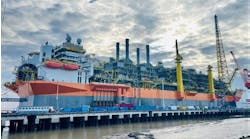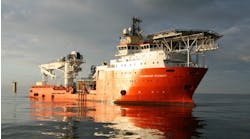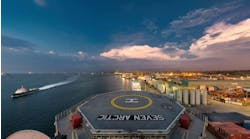Somali pirates no longer benefit from the easy pickings available in years past. Naval operations are increasingly successful, and for the most part, ships transiting the High Risk Area (HRA) are a more difficult prey for pirates than they were in 2010. Hardening measures, armed guards, and citadels have pushed down success rates for pirates. In 2010 around one in three attacks may have ended in a hijack. Now, it is fewer than one in 10.
Looking toward the longer term, if commercial shipping transiting the HRA remains relatively well protected, attack success rates will continue at their current level, or drop lower. In response, tactics will naturally be forced to evolve to ensure the survival of the increasingly inefficient Somali pirate business model.
As time goes on and fewer successful hijacks occur in the Gulf of Aden and Arabian Sea, criminals could look further south. The increase in energy exploration in the waters off East Africa could provide new and particularly attractive potential targets over the coming years.
As the US Geological Survey estimates, major gas finds over the past year have cemented East Africa as a future energy exporting region. Mozambique's offshore Rovuma basin alone is estimated to hold up to 100 tcf of natural gas, while discoveries by Statoil and ExxonMobil since the start of 2012 have pushed Tanzania's estimated offshore gas reserves to around 20 tcf. Further licensing for 16 offshore blocks there is expected. Additionally, thousands of kilometers of seismic work is underway off Seychelles, and exploratory drilling is planned for Kenya's southern offshore blocks.
In addition, planned long-term onshore infrastructure development is expected to attract a fresh supply of general cargo and container traffic (and therefore targets) through regional ports, as well as LNG shipments. Expansion and improvements at Mombasa, Dar es Salaam, Beira, and Mtwara are all in the pipeline. In addition, the proposed port development at Lamu, which makes up part of the ambitious Lamu Port and Lamu Southern Sudan-Ethiopia Transit Corridor (LAPSSET) project, is expected to include a major new port. Overall regional traffic could double within 10 years, according to some estimates.
As regional development grows, the number of energy-related vessels in East African waters will increase. Energy-specific vessels are easy targets for maritime criminals.
Supply vessels, seismic vessels, and drillships generally are not only slow moving and easy to board, but are also expensive technical vessels with high value, possibly Western, crew members on board.Ocean Rig Poseidon, the Statoil-operated drillship which spudded the Zafanari well in January 2012, was itself subject to a failed attack by pirates in October last year.
Energy companies with West African offshore experience may be well versed in the risks and potential impact of armed attacks and kidnapping of employees. However, piracy off the East coast takes a different form, tending to the more violent attacks that threaten offshore exploration and production in the Gulf of Guinea. Average negotiation periods with Somali pirate groups last around 170 days, and are likely to stretch further in years to come. The impact of a successful hijacking would therefore have larger financial consequences; the daily operating expense of technical exploration vessels means the impact of a hijack caused by loss of income could be far more than the amount of ransom paid, which is currently at an average of $4.8 million per vessel.
Looking beyond the exploration phase, if the benefits from expected oil and gas revenues are not distributed evenly across local communities, there is the risk that discontent and frustration with government and foreign oil companies becomes manifested in offshore attacks. Companies would be well advised to learn from experiences in the Niger Delta, for example, where a lack of community involvement and equitable distribution of wealth in years past are a root cause of maritime security issues today.
The longer term prospect for maritime security off East Africa therefore remains uncertain, as does the future capacity of littoral naval forces to contain the threat. Large-scale infrastructure and energy development could, in theory, attract new and attractive targets for armed robbers and pirates alike.
Rory Lamrock
AKE Intelligence
This page reflects viewpoints on the political, economic, cultural, technological, and environmental issues that shape the future of the petroleum industry. Offshore Magazine invites you to share your thoughts. Email your Beyond the Horizon manuscript to David Paganie at[email protected].


